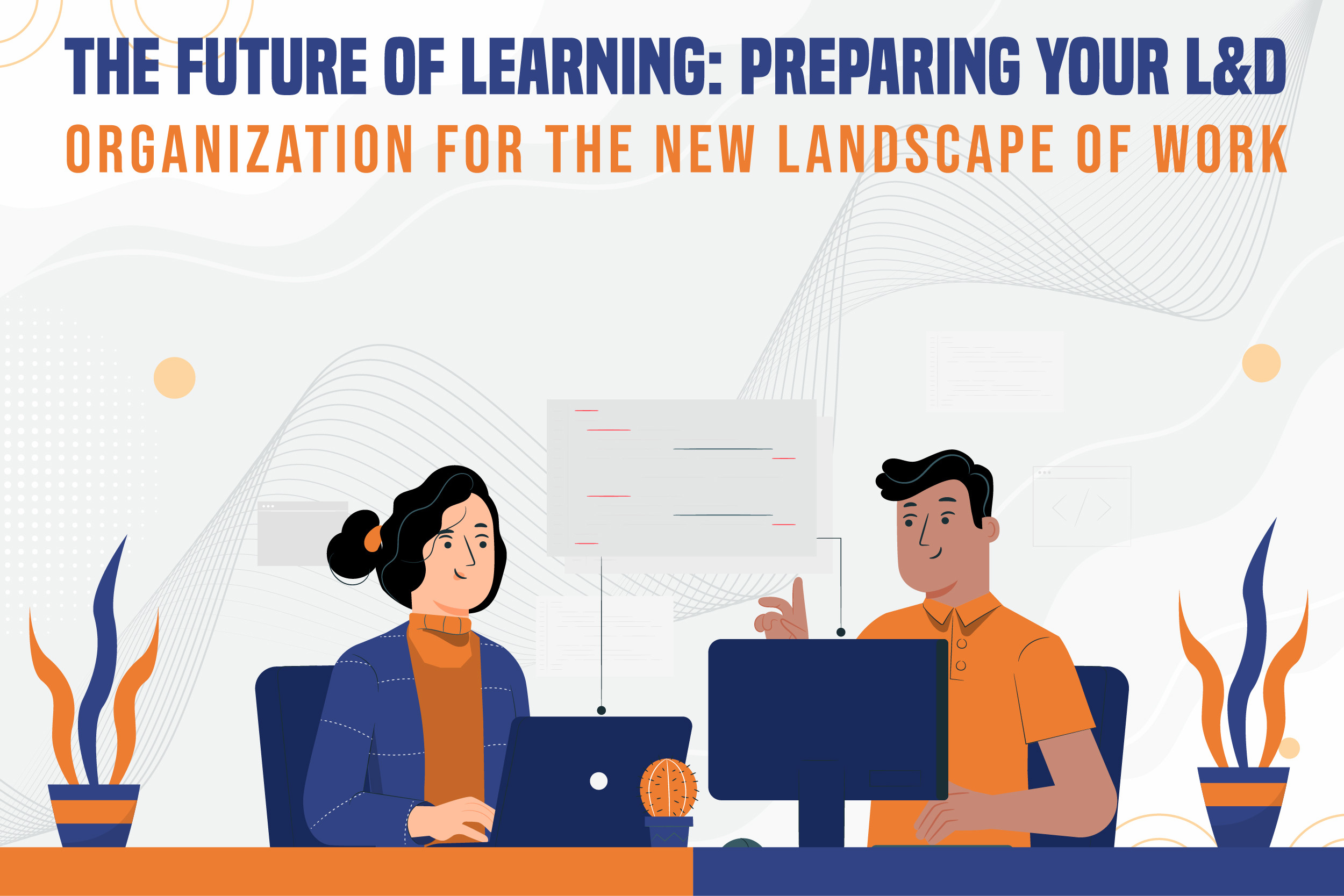
The Future Of Learning: Preparing Your L&D Organization For The New Landscape Of Work
Have you ever thought about how rapidly the world of work is changing? With new technology, shifting demographics, and changing business models, it's important to stay ahead of the curve. That's where learning and development (L&D) organizations come in. They play a crucial role in helping individuals and companies adapt and grow in this ever-changing landscape. In this article, we'll be exploring the exciting future of learning and sharing tips on how L&D organizations can prepare for the challenges and opportunities that lie ahead. So, get ready to dive in and discover how you can stay ahead of the game!
The Two Major Shifts
The world of work is undergoing significant changes that are disrupting traditional work and learning methods. The skills economy and the hybrid work approach are two major shifts that took place in the last few years. Both these shifts have potentially initiated a major change in many aspects. However, when combined, they are completely transforming the way we work and learn.
The skills economy is a shift towards a knowledge-based economy where skills are valued over degrees. In the past, the focus was on academic credentials, but today's employers are more interested in candidates' skills and ability to perform specific tasks. This means that individuals need to constantly upskill and reskill with Leadership Training Programs to stay relevant in the job market. The traditional approach to learning, where education was confined to a few years of formal schooling, is no longer sufficient. Instead, lifelong learning has become essential for career success.
The second shift, the hybrid work approach, is the blending of remote and in-person work. This approach has been accelerated by the COVID-19 pandemic, which forced many companies to adopt remote work on a large scale. The hybrid work model has several benefits, such as increased flexibility and reduced commuting time. However, it also presents challenges, such as maintaining team cohesion and ensuring equitable access to resources.
Together, the skills economy and the hybrid work approach are changing the landscape of work and learning and leading the Leadership Transformation. Organizations must adapt their L&D strategies to meet the demands of the skills economy, while also addressing the unique challenges of hybrid work. L&D professionals must focus on creating personalized and flexible learning experiences that meet the needs of individual learners. Additionally, they must leverage technology to provide engaging and interactive learning experiences that can be accessed from anywhere.
Based on the 2022 research study conducted by Brandon Hall Group, the efficiency and effectiveness of L&D organizations have been negatively affected by competency and skill gaps, as well as inadequate learning technology, according to 76% of the surveyed companies.
What Does It Imply For L&D Leaders And Providers?
The implications of the skills economy and the hybrid work approach for L&D leaders and providers are significant. Leaders need to focus on creating learning experiences that are personalized, flexible, and technology-enabled, in order to meet the demands of the skills economy and the unique challenges of hybrid work.
Additionally, they need to address competency and skill gaps within their organizations, as well as ensure that their learning technology is up-to-date and effective. By doing so, they can improve the efficiency and effectiveness of their L&D organizations and support the growth and development of their employees in the rapidly changing world of work. It’s crucial to note that they need the Best Leadership Courses for their comprehensive growth and development.
Importance Of Illustrative Solution Frameworks
As the skills economy and the hybrid work approach continue to disrupt traditional work and learning methods, L&D leaders and providers must adopt new solution frameworks to address these challenges. One such framework involves leveraging data analytics to identify competency and skill gaps within their organizations and creating personalized learning pathways to fill these gaps.
Another framework involves using technology-enabled learning experiences, such as virtual reality and gamification, to engage learners and enhance their learning outcomes. L&D leaders and providers must also focus on developing agile learning strategies that can adapt to the Leadership Transformation, changing business needs, and learning requirements.
By adopting these solution frameworks, L&D organizations can perfectly devise their learning and development programs that would successfully target the skills gap of the employees and yield desired outcomes. It will also facilitate the skills development of their employees in the present-day highly volatile work landscape.
Ending Lines
As a result, the skills economy and the hybrid work approach are transforming the work environment and the style of learning, and L&D leaders and providers must adapt their strategies to meet the demands of this new reality. By adopting personalized, flexible, and technology-enabled learning experiences, leveraging data analytics, developing agile learning strategies, etc. L&D organizations can drive growth, foster innovation, and support the success of their employees and organizations.
